Ever since telling a Sainsbury’s buyer where they could stick their measly 6p per lettuce, we have focused on selling directly to customers via our veg box scheme. From the start, we were able to set our prices at what it actually costs to grow, pack, and distribute great organic food, plus a little bit for profit and reinvestment.
Initially – trained by those negotiations with supermarket buyers – I ran a very lean business, pushing myself and everyone else hard. Health and safety was not high on my list of priorities. I had little time for work-life balance, and never thought about diversity and inclusion or gender equality. I was on a mission to show that organic farming was the way, and that was all that counted.
Fortunately, colleagues had the courage to challenge my tunnel vision – while financial security, age, and a subsiding ego all broadened my definition of success. Employee ownership was the biggest change; partly because I had to sit down and create some coherence about what Riverford is trying to achieve, and partly because my new co-owners wanted to be uncompromisingly ethical in ways that I had never even considered. Better maternity benefits, more sustainable packaging, electric vehicles, green energy, paying the voluntary Real Living Wage, devoting more resources to co-owner training, development, and wellbeing… Through all these investments, Riverford became a better, fairer, more sustainable business. We also became gradually more expensive. And this year, our Co-owner Council rightly questioned whether we are meeting another of our founding values: to be ‘affordable and accessible to all’.
Food represents just 11.2% of the average British household’s annual expenditure; down from 33% in the 1950s, and one of the lowest rates in the world. Principles and real quality food come at a cost, and we will never compete with the supermarkets’ race to the bottom on price alone. However, we do strive to bring you good value in its broader sense: making sure that our prices are as inclusive as can be, without ever compromising on quality or ethics. About a month ago, thanks to some careful planning, we were able to reduce the prices of 20 staple fruit and veg, without reducing our pay to the growers. We are looking at ways to make more reductions – so keep an eye out. And, as ever, thank you. Without the support of customers like you, our values would be valueless.
Our News from the Farm posts come from Riverford. They are the digital versions of the printed letters which go out to customers, every week via Riverford’s veg boxes. Guy Singh-Watson’s weekly newsletters connect people to the farm with refreshingly honest accounts of the trials and tribulations of producing organic food, and the occasional rant about farming, ethical and business issues he feels strongly about.

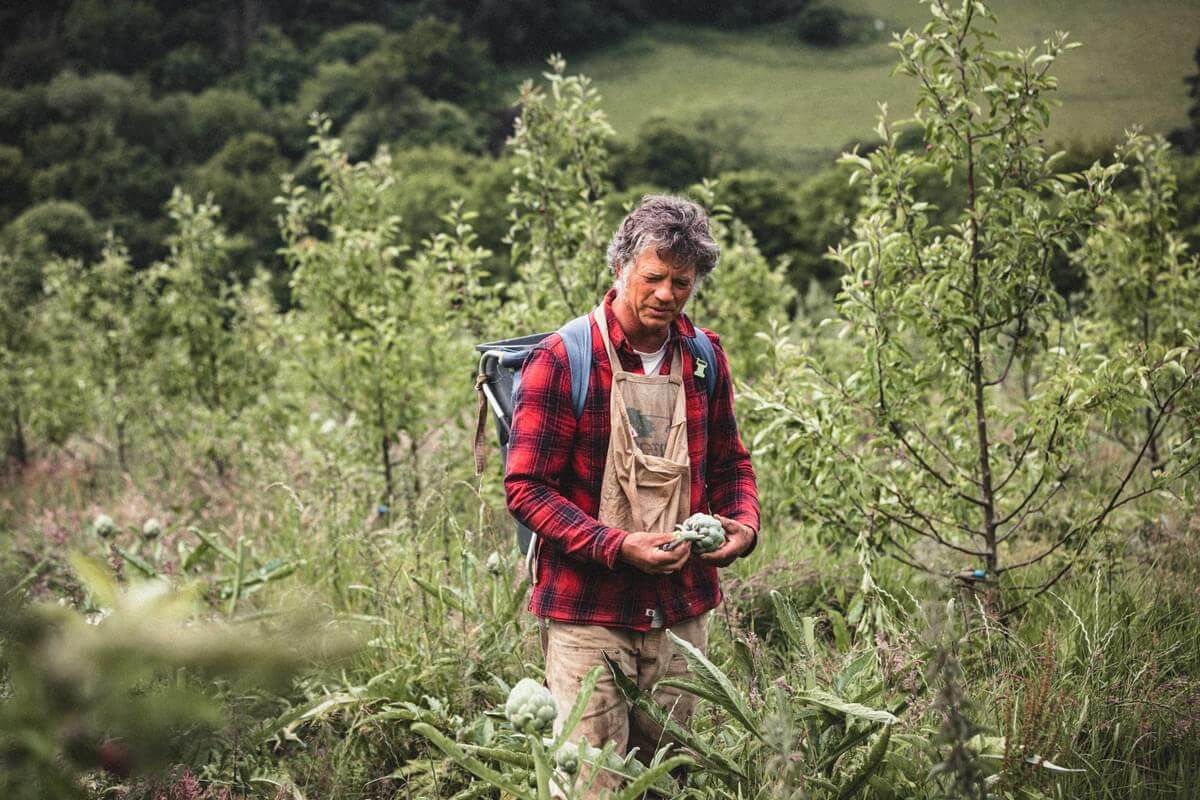

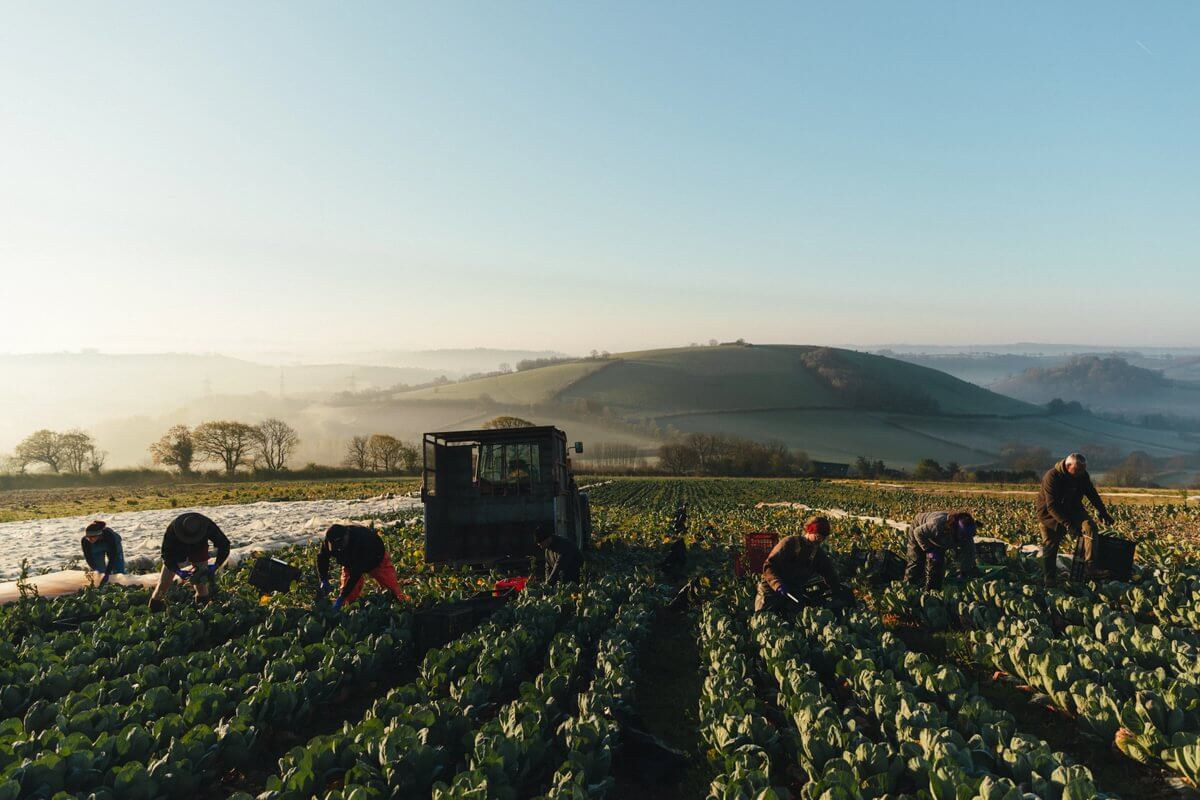

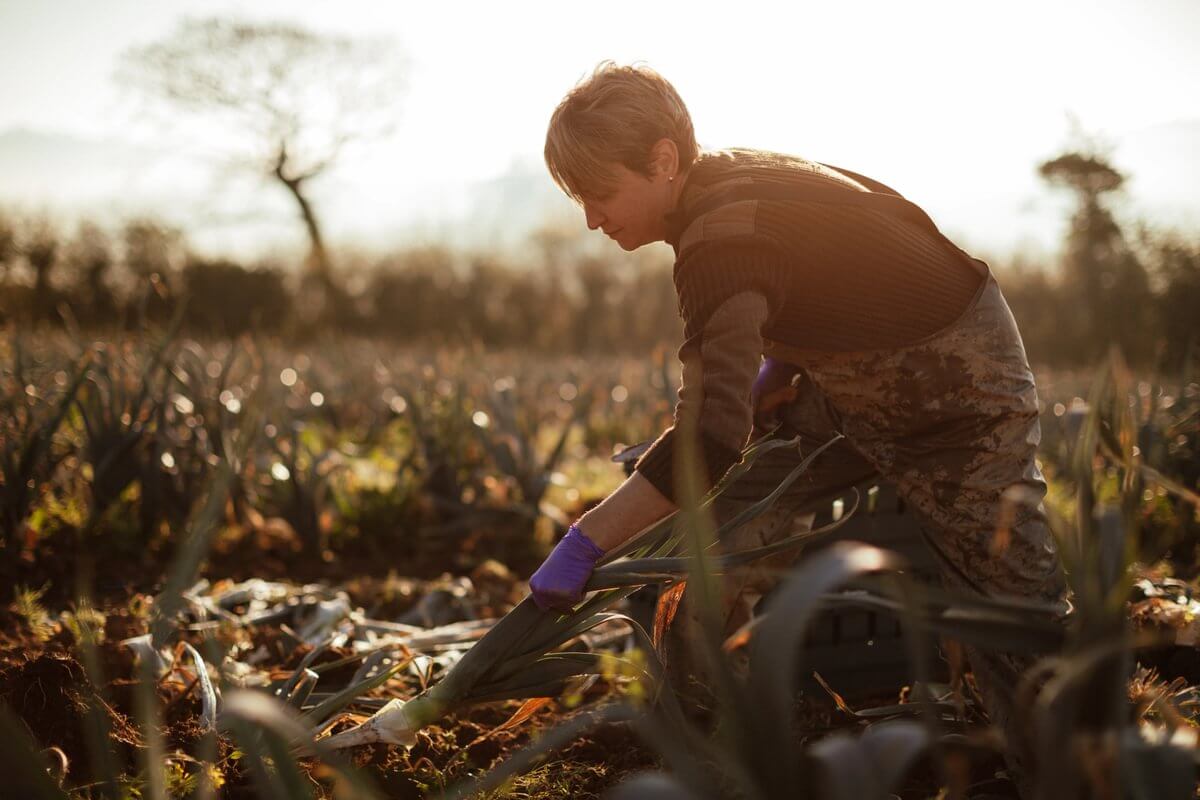
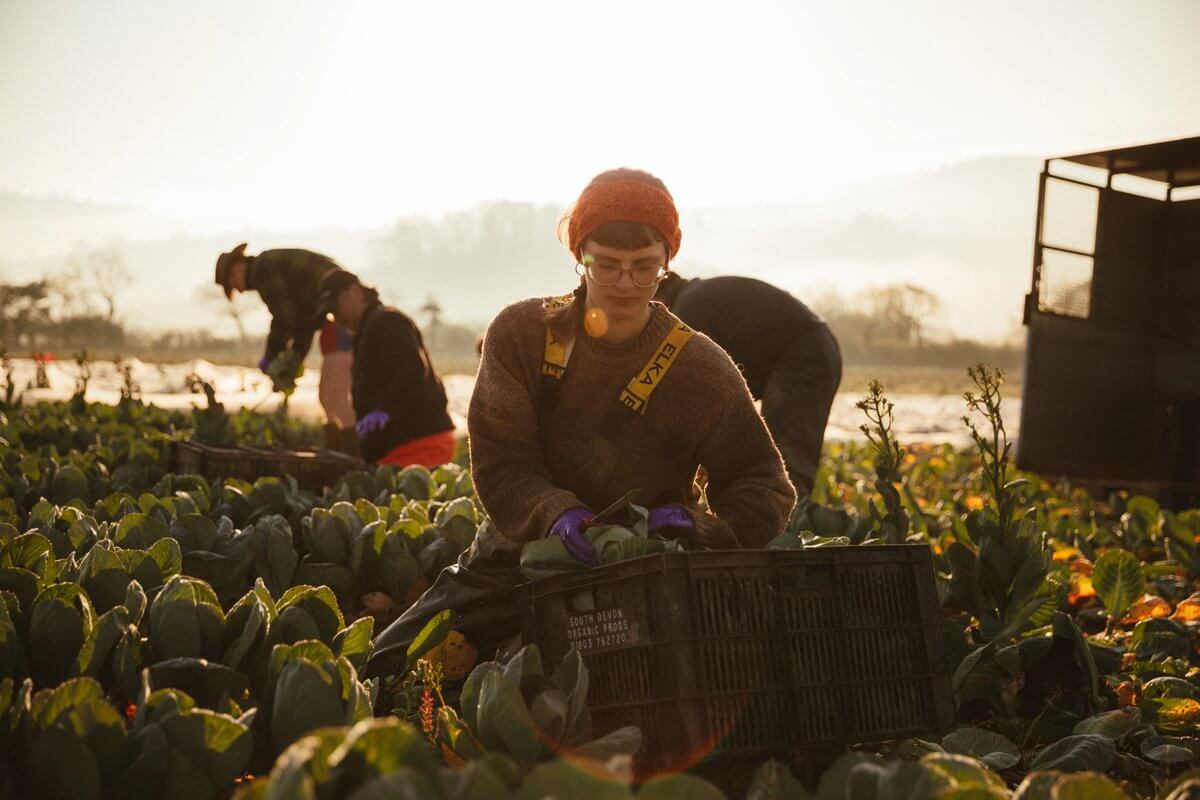

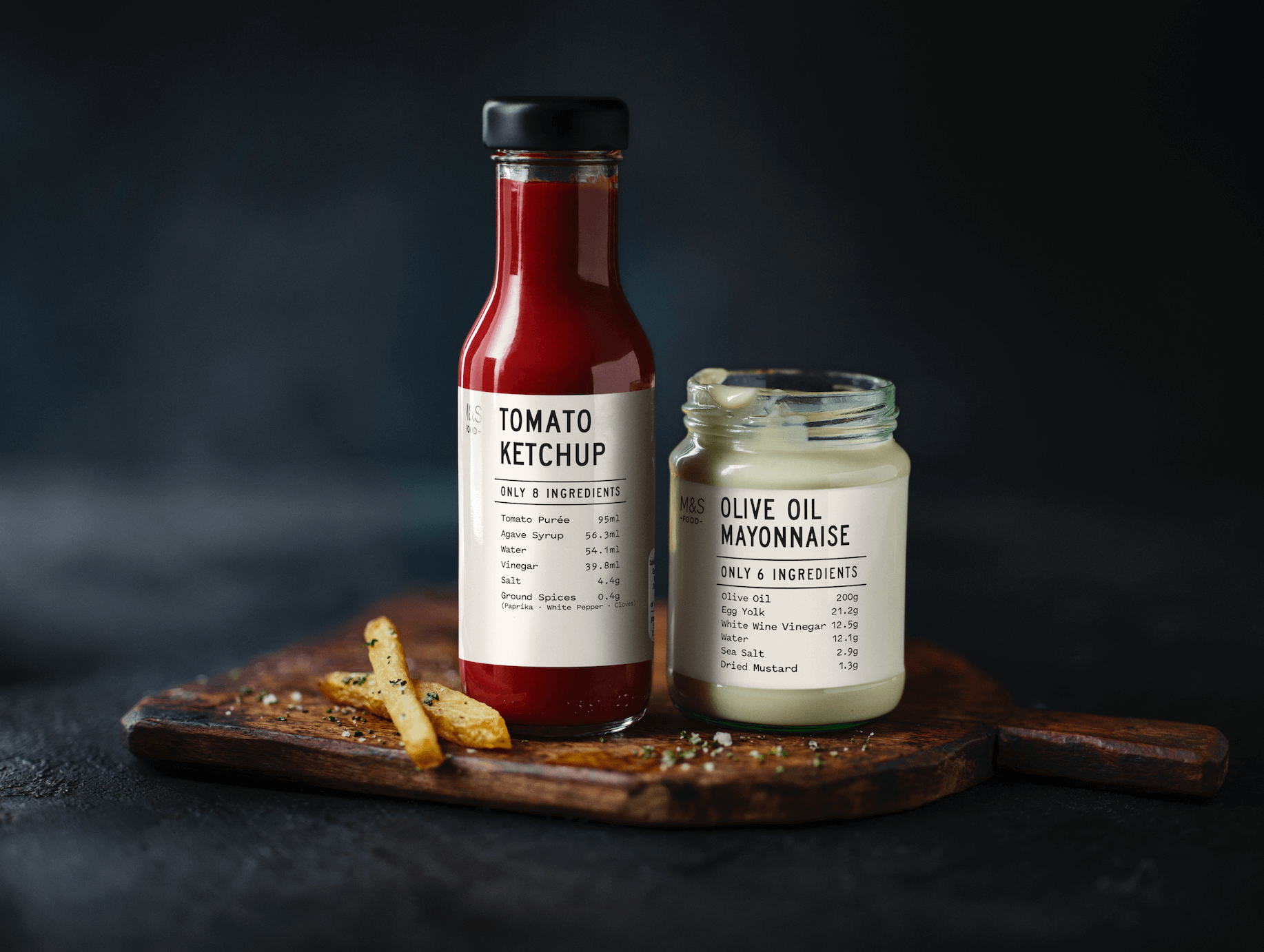





The percentage of money spent on eating out has increased dramatically since the 50’s, so it isn’t surprising that shopping for food to be prepared at home has decreased, in fact im surprised it isn’t lower.
All those subscription TV fees have to be paid somehow, and commission to car dealers – see today’s UK Supreme Court judgment, which includes this quite staggering comment:
“A person who wishes to obtain a car for their personal use visits the dealer, chooses a car and agrees a price with the dealer. The price may be reduced for a buyer on credit, below that payable by a cash buyer.”
So what if we pay less for food. And so what if greengrocers, butchers, fishmongers and bakers are priced out of the high street – just become a hairdresser and all will be well.
We live in a perverse world. Be grateful for the little sanity we have at Riverford and some others (including in fairness our local B corp bakers). Just ignore TV ads for KFC … you know you can.
People have been paying too little for their food for too long. Food should not be so cheap that the farmer and the pickers do not receive a decent living. It is hard work and should be rewarded appropriately. Well done Guy and Riverford.
In this world where all the bad news can make you feel somewhat helpless, being a Riverford customer and knowing you are a small part of something sustainable gives me hope. Thank you
I’ve been watching Riverford’s progress for about 40 years now, having had lunch with Guy when he was still doing most of the delivery work himself. The rise and rise has been remarkable, and it’s good for organic farming that Guy and Riverford have a voice and are heard in some of the political circles that dominate our corrupt food industries.
But there is one area that is not ever discussed: how big is “too big” ? And the corollary: is “local” a desirable ethical, social value? For all the good news that I hear from Wicked Leeks, Guy, the publicity that comes with the veg boxes, and so on, I do wonder whether the Riverford model of unlimited expansion and nationwide distribution is in keeping with any concept of “local”. It seems to me that Riverford has made a mockery of “food miles”, which 25 years ago was one of the talked about principles of the organic food movement. Considering all the good things that Riverford has done these last 4 decades, it seems now that the Riverford van passing our farm every week is our biggest competitor. How many small organic farms across the southern half of England are next to the route of those 80,000 boxes that Riverford deliver each week? How many of those small farms can actually manage to sell their lettuces for much more than the 6p that Guy thought was derisory all those years ago? Riverford may pay its farmers a good price for their produce, but what about all the other organic farmers that are struggling to make ends meet, and who need to have a share of the box delivery market in their local area if they are going to survive? Has your co-owner Council ever considered the effect that one giant company has on all of its co-partners in the organic farming movement?
One of the comment-contributors to this article is called “formerfarmer”. What happens when a small farm can’t make its financial ends meet? Most commonly that land goes to non-organic activity, such as house-building or larger-scale conventional farming. Does Riverford factor in those losses when it evaluates the success of expansion each year?
Interesting comment and food for thought (pardon the pun). Many (over 10 ) years ago I tried to order a veg box from a local organic farm only to be told they do not deliver to our area. We lived off a main road which they had to use to deliver to other customers – it would have necessitated a very small detour. I searched in vain for other local organic veg box schemes and found none that would deliver to us. The only option for us – yes, you’ve guessed correctly- was Riverford, and we’ve remained with Riverford ever since.
Interesting article Guy, thank you; particularly “And this year, our Co-owner Council rightly questioned whether we are meeting another of our founding values: to be ‘affordable and accessible to all’.” That is a difficult question and undoubtedly it is not possible for ‘commercial’ organic to match the prices of supermarkets so how can you be ‘accessible to all’?
and also Richards at Radford’s comments, some difficult questions raised.
Thank you for Wicked Leeks for discussing these issues